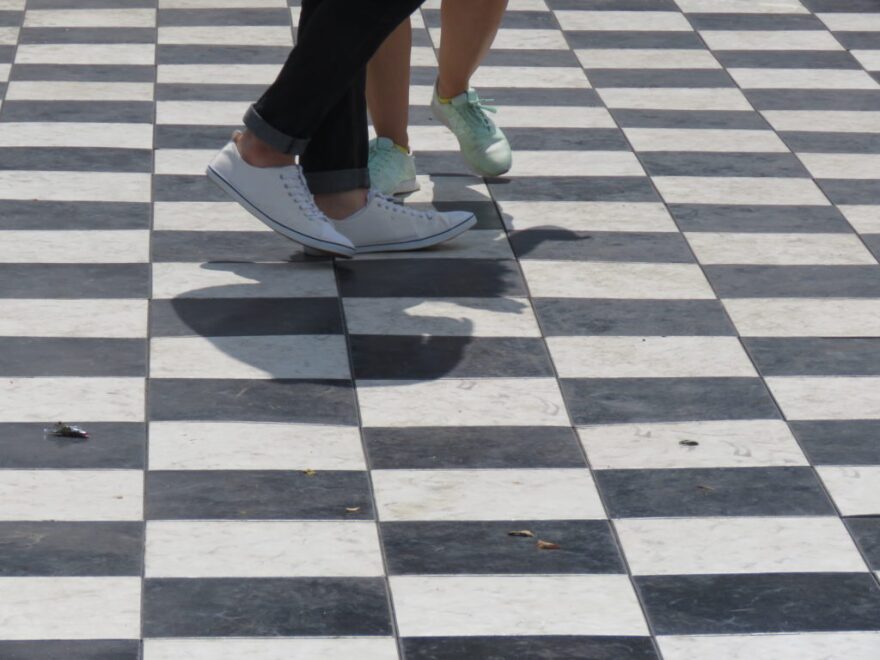The Celebrating Our Neighborhoods event series, done in partnership with Kentucky Refugee Ministries and Americana World Community Center, is part of ongoing efforts at the library to uplift the culture of Louisville immigrant communities.
“It's clear with such a large growing Cuban population that was a great one to start with,” library programming coordinator Tony Dingman said.
Dingman said the library’s reach makes it a good choice to reach large swaths of the city.
“Unlike many, many other institutions in Louisville, the library has a branch in every region,” he said. “Because the library can be in the community with you, we could do programming all over the place.”
Celebrating Our Neighborhoods includes four events over two weeks, each at a different library branch.
The events are:
The History of Cuba: The 1959 Cuban Revolution
- Nov. 8, 6:30 pm; Main Library, 301 York Street
The Dance of Cuba
- This event has been postponed indefinitely.
The Cuisine of Cuba
- Nov. 15, 6:30 pm; Northeast Regional, 15 Bellevoir Circle
The Music of Cuba
- Nov. 16, 6:30 pm • South Central Regional, 7300 Jefferson Boulevard
Daynier Adan is one of the people leading the dance-focused event.
He said Cuban culture is often distilled and turned into a monolith to increase its mass appeal.
“The truth is that Cuba is more like an onion,” Adan explained.
He said waves of Cuban immigration brought people with different ideals and cultural understandings. That is not to mention the cultures and people, including indigenous and Black communities, who have influenced Cuba over time.
“It's something that we're trying to be sensitive to and that is: This Cuban program could not, I think, be encapsulated in one program,” Dingman said.
When it comes to dance, the “Cuban salsa” Adan sees being taught doesn’t reflect what he knows to be Cuban salsa, or as it would be called in Cuba, casino.
“I've been in New York surrounded by very, very important musicians talking about Cuban rhythms, and when they told me the name [of the music] it’s like, that's not even Cuba,” Adan explained. “How is it that [Louisville] is the second largest city in the country with the most Cubans and the salsa style of dancing is not Cuban it is from LA?”
Adan said the dance program won’t focus on movement alone, but also on the evolution of the dance, which includes influences from enslaved people who were brought to Cuba.
“Casino comes straight from Yoruba dances,” he explained, referring to an ethnic group from what is now Nigeria. “Those dances a lot of times express deep sadness of being completely derooted and, and being basically kidnapped from where you're from.”

He said Cubans are often absent from public events like this one, and that leads to misrepresentations.
“It's important to be able to control their own narrative for power dynamics,” Adan said. “I think it's important that we tell our story for once, because Fidel Castro, for a different agenda, have not allowed us to tell our stories, either.”
The Celebrating Our Neighborhoods events intentionally place Cuban people at the front of the conversation allowing attendees to connect with their Cuban neighbors.
Alex Miniard is the community and outreach manager at Kentucky Refugee Ministries. She said building connections over things like music, dance and food can help forge deeper relationships with people who are different.
“Once you open that door, and open those minds, it becomes easier to hear factual information, to hear what's really going on and be receptive to that to each other, and to treat people in a more equal way that's beneficial for the entire community,” Miniard said.
“How can you feel at home if you don't feel visible in your community?”
This story has been updated to reflect that the dance-focused event has been postponed indefinitely.





